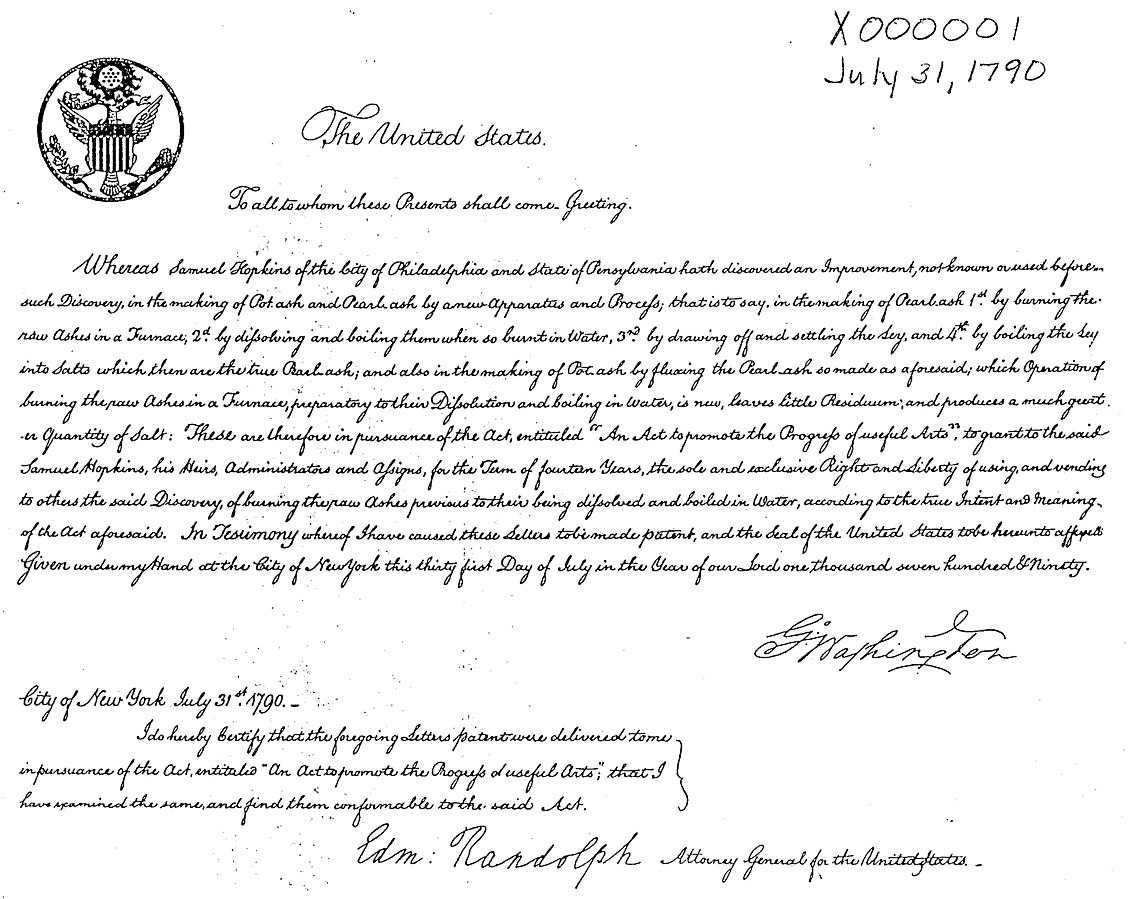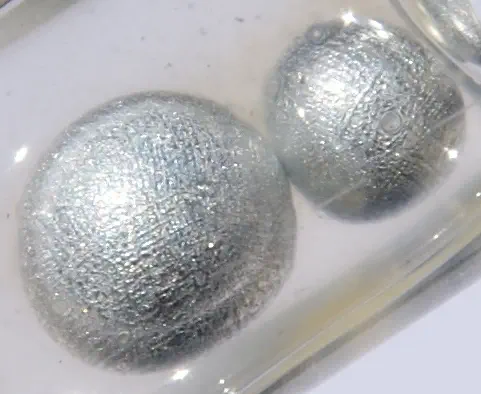potash


On July 31, 1790, the first US Patent was issued.
It was issued to Samuel Hopkins ..
.. for a way to get good potash.
What is potash?
The name comes from pot ash, plant ashes or wood ash soaked in water in a pot.
The word potassium is derived from potash.
The word "potash" originates from the Middle Dutch "potaschen", denoting "pot ashes" in 1477.
The old method of making potassium carbonate was by collecting or producing wood ash (the occupation of ash burners), leaching the ashes, and then evaporating the resulting solution in large iron pots, which left a white residue denominated "pot ash".
Approximately 10% by weight of common wood ash can be recovered as potash.
Later, "potash" became widely applied to naturally occurring potassium salts and the commercial product derived from them, although it most probably derived its name (where it was used) from the anion of the acid that replaced the carbonate moiety, a common equivocative use of "potash" for "potassium".

Potassium pearls under paraffin oil. Original size of the largest pearl: 0.5 cm
Potash is produced worldwide in amounts exceeding 90 million tonnes per year (40 million tonnes potassium oxide, K2O), with Canada being the largest producer, mostly for use in fertilizer.
Various kinds of fertilizer-potash constitute the single greatest industrial use of the element potassium in the world.
Potassium was first derived in 1807 by electrolysis of caustic potash (potassium hydroxide, KOH).
Potassium is the chemical element with the symbol K (from Neo-Latin kalium) and atomic number 19.
It is a silvery white metal that is soft enough to easily cut with a knife.
Potassium metal reacts rapidly with atmospheric oxygen to form flaky white potassium peroxide in only seconds of exposure.
It was first isolated from potash, the ashes of plants, from which its name derives.
In the periodic table, potassium is one of the alkali metals, all of which have a single valence electron in the outer electron shell, which is easily removed to create an ion with a positive charge (which combines with anions to form salts).
In nature, potassium occurs only in ionic salts. Elemental potassium reacts vigorously with water, generating sufficient heat to ignite hydrogen emitted in the reaction, and burning with a lilac-colored flame.
It is found dissolved in seawater (which is 0.04% potassium by weight), and occurs in many minerals such as orthoclase, a common constituent of granites and other igneous rocks.
Potassium ions are vital for the functioning of all living cells.
The transfer of potassium ions across nerve cell membranes is necessary for normal nerve transmission; potassium deficiency and excess can each result in numerous signs and symptoms, including an abnormal heart rhythm and various electrocardiographic abnormalities.
Fresh fruits and vegetables are good dietary sources of potassium.
The body responds to the influx of dietary potassium, which raises serum potassium levels, by shifting potassium from outside to inside cells and increasing potassium excretion by the kidneys.
Heavy crop production rapidly depletes the soil of potassium, and this can be remedied with agricultural fertilizers containing potassium, accounting for 95% of global potassium chemical production.